Biltong? What is that? Sounds strange, but it tastes wonderful. For those who don't know, biltong is spiced, dried beef, South African style. Biltong can also be made with ostrich and other game meats available in South Africa. Don't call it jerky, or you might find yourself in a pointed discussion with a Springbok vehemently arguing the finer points between jerky and biltong. What are the main differences?
1. Biltong is usually cut thicker than jerky.
2. Biltong has a sweeter taste than jerky due to the spice profile. I'll agree to this point when compared to traditional jerky. But there are so many jerky rubs and marinades on the market now, this is not necessarily the case these days.
3. Biltong gets a vinegar bath.
My brother in law introduced me to this South African delicacy many years ago while I was visiting him and my sister in London. Ever since we purchased our smoker, I have toyed with the idea of making a smoked variety. I finally got down to some serious R&D this past week...
The main spice and flavor profiles come from sugar, coriander, and the vinegar marinade. I had no idea where to start for a recipe. So, after some diligent web research, I found one that sounded good. I used this recipe on Food.com that received some good reviews by South Africans whose biltong was confiscated by US Customs and were in need of a biltong fix. I have found other recipes that use cider vinegar instead of red wine vinegar. I ran out of red wine vinegar, so I made up the difference with cider vinegar. I liked how the cider taste came though, so I think for my next batch, I will use entirely apple cider vinegar. You could use other types of vinegar as well to adapt to your own tastes.
First, I took an eye of round and trimmed as much of the fat and silver skin away that I could...
After cutting in half, I cut 1/4 inch slices with the grain of the meat. When I came to the end of the slicing and my fingers came into play, I flipped the remaining meat on its flat end and cut thick, 1/4 inch strips...
Next, I packed the sliced meat into a bowl and covered with the marinade. Swim time? 30 minutes...
Then, I ground up some coriander and black pepper into a bowl and thoroughly covered the meat with the spices after the marinade...
Here is the part that some of you that are salt conscious might have trouble with. Take the spice covered meat, place into a bowl, and bury with the salt, sugar, baking soda mix...
Don't worry, we'll take care of that salt later. The meat stays buried for 3 hours. During that time, the salt acts to remove the water from the meat which starts the drying process. After three hours, I removed the meat from the mixture, leaving as much of the solid behind as possible, and placed into a clean bowl. See how the salt pulled the moisture from the meat? The meat even felt firmer.
The meat then went back into the reserved marinade for five minutes to start the rinsing process...
After five minutes in the marinade, I rinsed each piece of meat in fresh apple cider vinegar to remove as much salt as possible. Do yourself a favor and add this step like I did. It ensures that you actually get dried meat and not dried salt sticks. After rinsing, I place the meat in paper towels, then squeezed as much of the liquid out of the meat that I could...
Here is what the meat looked like after squeezing. As you can see, the salt has started to dry the meat already...
Here is where I really deviate from biltong making, but it was a necessity to add that smoke flavor that I was looking for. The traditional way to make biltong is to tie a piece of string to each piece and hang in a dry place for anywhere from 3-20 days to dry out the meat. I place the meat in my smoker at 125 F so that I could add some smoke while drying out...
Picking this temperature allowed the meat to: stay uncooked for the most part, it allowed me to impart some smoke flavor (I used oak), and it shortened the drying process to about six hours total. Here is the final product...
The smell of vinegar, coriander, and oak smoke was intoxicating while the meat was on the smoker. I couldn't wait for that first bite. As it turned out, I did a really good job for my first time making this South African treat. The meat does have the texture of boot leather. But, once you start chewing, the vinegar comes out and mixes with the coriander with a shot of flavor that is hard to describe, but satisfying none the less. If you are tired of the usual jerky, I suggest that you give biltong a try.
Thanks for stopping by...
Bill

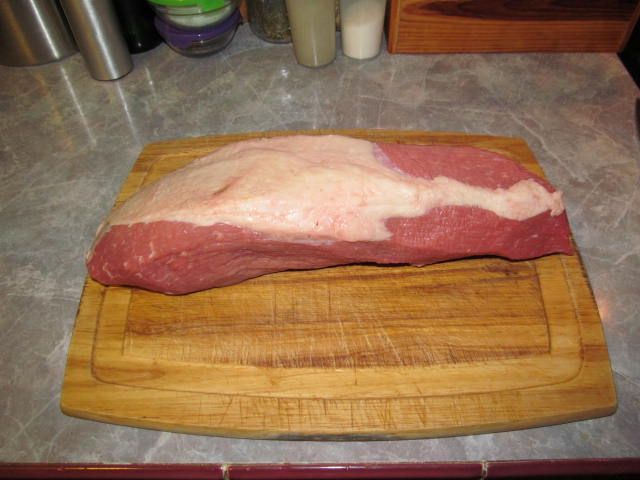
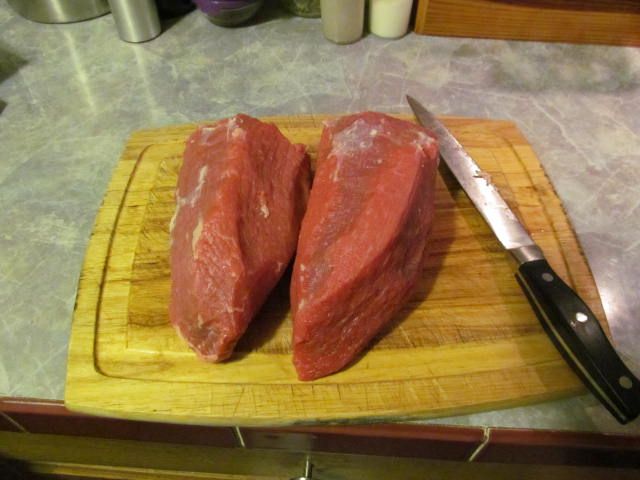
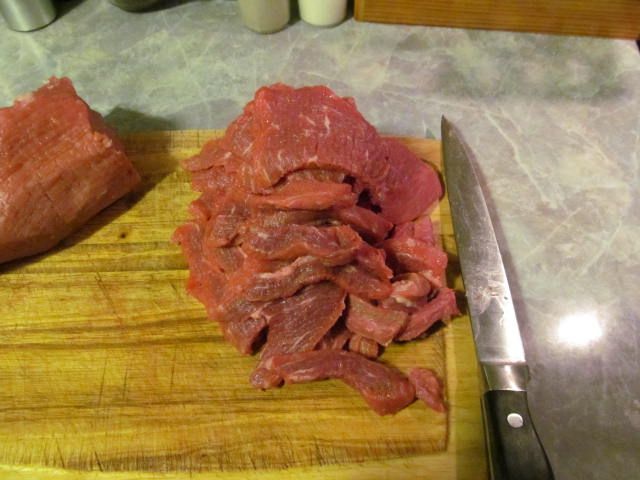
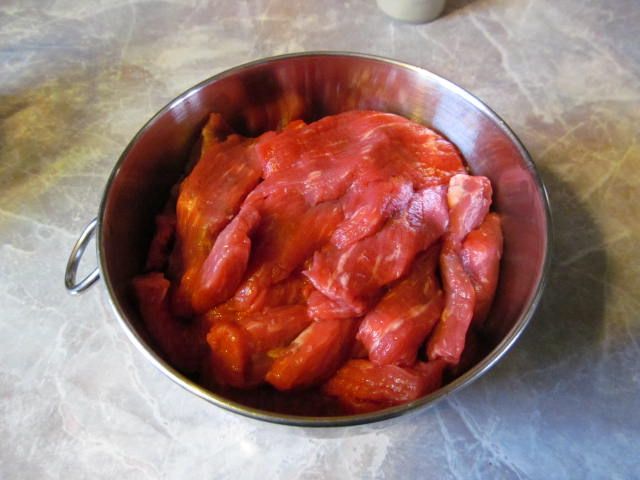
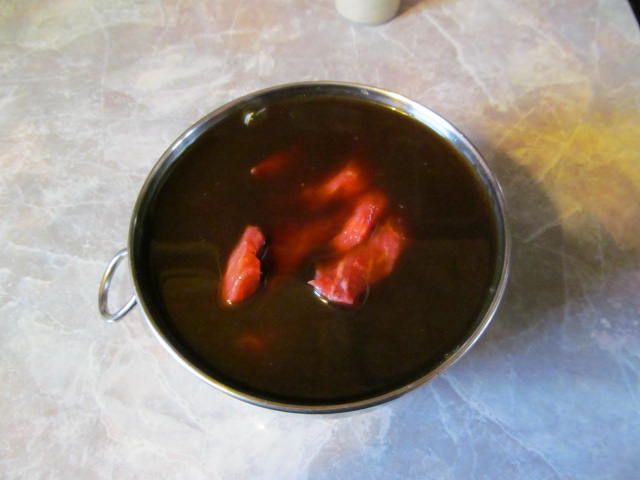
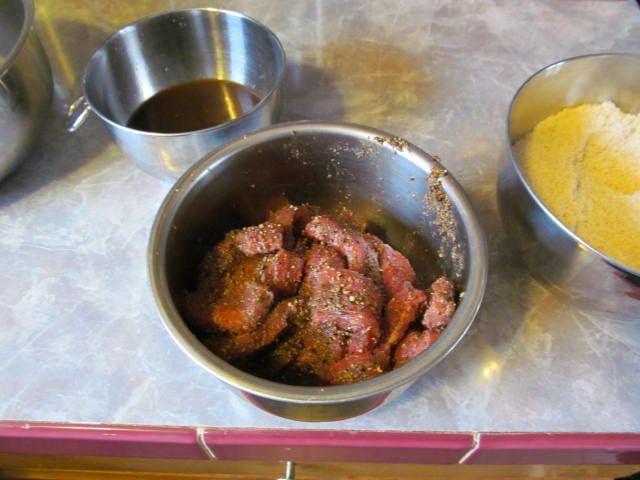
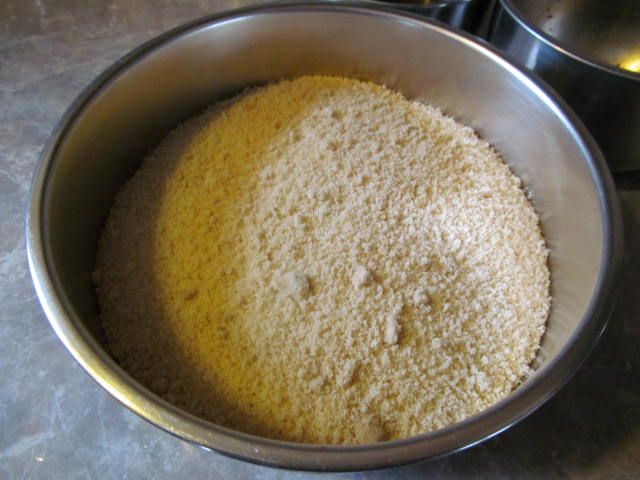

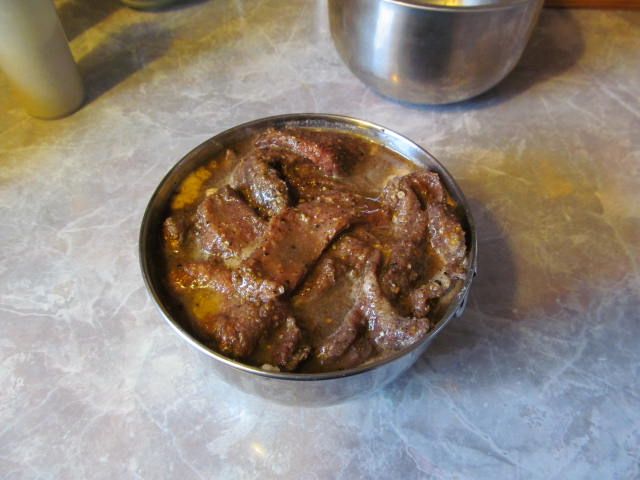
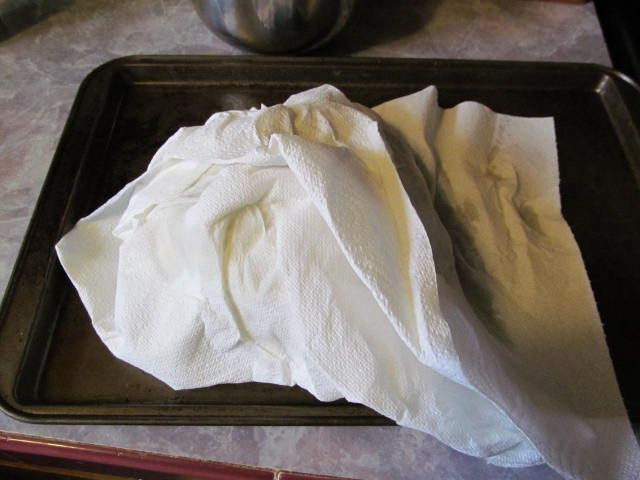

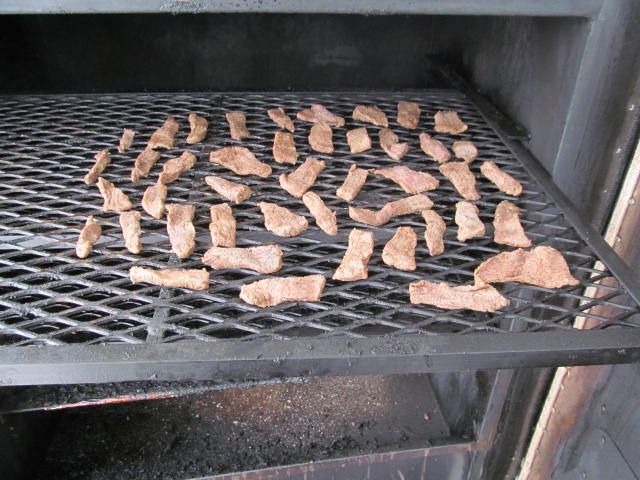

Thanks! I try to do it! Regards from Poland!
ReplyDeleteI am glad you liked it. Please let me know how it turns out for you.
ReplyDeleteThanks for stopping by...
Bill